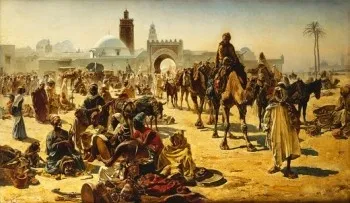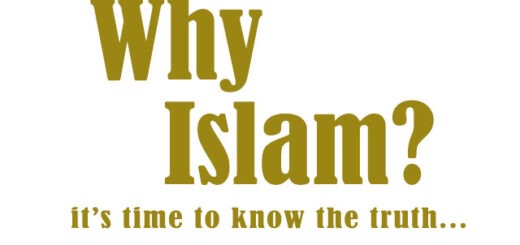The Ethics of War in Islam

The Ethics of War in Islam: A Civilizational Distinction
Good character, gentleness, compassion toward the weak, and tolerance with neighbors and relatives are virtues practiced by all nations during times of peace—even the most barbaric among them. However, noble conduct during war, kindness toward enemies, mercy to women, children, and the elderly, and tolerance with the defeated—these are not qualities every nation can uphold, nor traits every military leader can embody. The sight of blood provokes bloodlust, enmity fuels hatred and rage, and the euphoria of victory intoxicates conquerors, leading them to commit the most heinous acts of revenge and cruelty. This has been the nature of humankind since the moment Cain shed the blood of his brother Abel:
“When they both offered up a sacrifice, and it was accepted from one of them but not the other, he said: ‘I will surely kill you.’ The other said: ‘Allah accepts only from those who are righteous.’” (Al-Ma’idah 5:27, Yusuf Ali translation)
It is here that history places the laurel of immortality on the heads of the leaders of our civilization—military and civilian, conquerors and rulers—for they alone, among all the great civilizations, distinguished themselves with a just and compassionate humanity, even at the height of battle and during the darkest moments that typically give rise to vengeance and bloodshed. I swear, were history to recount this unique miracle of ethical warfare with a truth beyond doubt, one might dismiss it as myth or legend with no basis in reality.
If peace is the foundational state in Islam, and warfare is only permitted for specific reasons and objectives, then Islam has not left war without rules or ethics. Rather, it has placed restrictions to govern warfare, ensuring that it is guided by moral standards and not driven by base desires. Warfare in Islam is against oppressors and aggressors—not against the innocent or the peaceful.
The most significant ethical limitations in Islamic warfare can be summarized as follows:
1. Prohibition of Killing the Elderly, Women, and Children
The Prophet Muhammad ﷺ would advise military commanders to fear Allah and observe righteousness, which would inspire them to uphold the ethics of warfare. Among his orders was the prohibition of killing children. Buraydah narrated:
“Whenever the Messenger of Allah appointed a commander over an army or a detachment, he would especially advise him to fear Allah and be good to the Muslims under his command. He would say, ‘…Do not kill a child…’” (Muslim)
Abu Dawud adds:
“…Do not kill an old man, nor a child, nor a young boy, nor a woman.”
2. Prohibition of Killing Devoted Worshippers
Ibn Abbas reported that the Prophet ﷺ would instruct his troops:
“Do not kill the inhabitants of hermitages.”
He also said:
“Go forth in the name of Allah. Fight in the way of Allah those who disbelieve in Him. Do not commit treachery, do not embezzle, do not mutilate, do not kill children or the monks who dwell in cells.” (Ahmad)
3. Prohibition of Treachery
Among his commands to armies was: “Do not betray.” This applied even when dealing with treacherous enemies. The Prophet ﷺ declared himself free of responsibility even if the victim of treachery was a disbeliever:
“If someone gives protection to a man and then kills him, I am free of the killer, even if the killed was a disbeliever.” (Al-Bukhari)
This principle was firmly instilled in the hearts of the Companions. During his caliphate, ‘Umar ibn al-Khattab heard that one of his soldiers had told a fleeing Persian enemy, “Do not fear,” only to kill him afterward. ‘Umar wrote to the commander:
“By Allah, if it reaches me that anyone from your army does this, I will strike off his head.”
4. Prohibition of Destruction and Corruption
Muslim warfare was not a campaign of devastation like many modern wars that seek to obliterate the enemy’s entire civilization. Muslims took care to preserve life and infrastructure, even in enemy lands. This is reflected in the words of Abu Bakr al-Siddiq to the armies heading to the Levant:
“Do not cause corruption in the land.”
He also said:
“Do not burn palm trees or drown them. Do not slaughter sheep, cows, or camels except for food. Do not destroy fruitful trees, nor demolish monasteries.”
These instructions were detailed and deliberate to prevent any misconception that animosity justified acts of destruction.
5. Kindness to Prisoners of War
Feeding and aiding prisoners is considered a meritorious act in Islam, recognizing their vulnerable state and need for compassion. The Qur’an places prisoners on the same level of care as orphans and the needy:
“And they feed, for the love of Allah, the indigent, the orphan, and the captive.” (Al-Insan 76:8)
(A separate article may be dedicated to the treatment of prisoners in Islam, God willing.)
6. Prohibition of Mutilation
The Prophet ﷺ forbade mutilation. Abdullah ibn Zayd narrated:
“The Prophet ﷺ forbade looting and mutilation.” (Al-Bukhari)
Imran ibn Husayn also said:
“The Prophet ﷺ urged us to give charity and forbade us from mutilating the dead.” (Abu Dawud)
Despite what the pagans did to his uncle Hamza during the Battle of Uhud, the Prophet ﷺ maintained his principles and did not retaliate in kind. He even warned the Muslims with severe consequences if they resorted to mutilation:
“The most severely punished people on the Day of Judgment will be a man killed by a prophet, or who killed a prophet, a misguided leader, and one who mutilates the dead.” (Ahmad)
There is not a single incident in the Prophet’s life where Muslims were reported to have mutilated any of their enemies.
Such is the ethics of war in Islam—a code that does not cancel out honor in opposition, justice in conflict, or humanity in the midst of combat and its aftermath.
Sources:
-
Sahih Muslim
-
Sunan Abu Dawud
-
Musnad Ahmad
-
Sahih al-Bukhari
-
Qur’an (Yusuf Ali translation)
-
Ibn Hisham’s Sirah
-
Al-Tabari’s History


